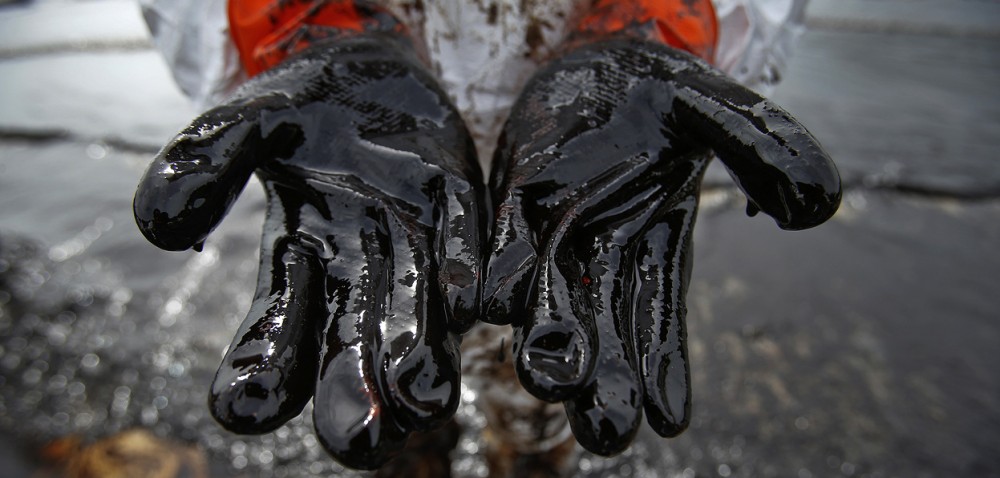
The oil industry’s eyes have turned eastwards as national oil companies (NOCs) form Asia are increasingly dominating the global mergers and acquisitions playing field. One example that the Financial Times points out is Mozambique: in recent years huge quantities of natural gas have been discovered, and so far this year Chinese and Indian NOCs have parted with $9.3 billion for a chunk of the impoverished east African country’s hydrocarbon riches.
NOCs are beginning to take a more prominent role in M&A activity around upstream companies involved in exploration: last year they spent $50 billion on overseas assets, which accounted for a fifth of the global upstream M&A market.
The most successful examples are oil giants CNPC, Sinopec and Cnooc, all backed by the Chinese state. Thanks to their decade-long spending spree, China’s overseas equity oil production stood at 1.5m barrels of oil a day in 2011, compared to just 140,000 barrels a day in 2000. The value of acquisitions by Chinese and other Asian NOCs in the global upstream market rose from $1.2 billion in 2007 to $45.3 billion last year. Chinese NOCs took 22 per cent of the global market in the first half of 2013.


Chinese companies began by investing in politically risky countries that the majors balked at, such as Venezuela, Iran and Sudan. This was because Chinese oil companies seeking to expand abroad had little option but to take the risk: most of the world’s oil reserves were controlled by Middle Eastern governments that did not welcome foreigners. The rest was carved up between supermajors, such as Royal Dutch Shell and ExxonMobil, that had no interest in collaborating with Chinese groups at the time. That, says Amy Myers Jaffe, head of energy and sustainability at the University of California, Davis, proved “disastrous”. “They often wound up in places where the risk was so high it was unclear whether they’d ever be able to monetise the assets,” she says.

Then, the oil and gas boom in North America saved them, the FT argues. Chinese companies avoided the region after the failure of Cnooc’s planned $18.5 billion acquisition of Unocal of the US in 2005. However, once vast reserves of shale gas were opened up by technological advances – so-called “tight oil” that had simply been uneconomic to extract – big opportunities sprang up.

Backed by access to cheap capital, Chinese companies have spent $8.5 billion on unconventional oil and gas projects in the US since 2010. Last year with Cnooc’s $18bn acquisition of Nexen, the Calgary-based company that has large oil sand and shale gas reserves in western Canada.
Chinese companies have also benefited from a shift in strategy as big US independents loo to sell off their overseas assets and concentrate on North America:
- US company Apache last month annoucned that it was selling a 33 per cent stake in its Egyptian oil interests to Sinopec for $3.1 billion.
- PetroChina is expected to pick up a stake in Iraq’s West Qurna 1 field from ExxonMobil, a move that will cement the Chinese NOCs’ already dominant presence in Iraq’s huge southern oilfields.
- CNPC is likely to end up acquiring ConocoPhillips’ 8.4 per cent stake in Kashagan, a giant oilfield in the Kazakhstan sector of the Caspian Sea.
However, as the Chinese NOCs’ geographical footprint grows, their strategy is also evolving. Before 2008, they mainly played it safe, buying reserves that had been discovered and exploited successfully by other companies. Now they have set their sights on big, technically challenging areas such as liquefied natural gas and deep-water crude.
Although this comes with a risk: for example in Mozambique, where in March CNPC acquired a 20 percent working interest in the gas-rich Offshore Area 4 from Italy’s Eni for $4.2 billion. It was the biggest international transaction in the global upstream sector in the first half of 2013, but Mozambique has next to no infrastructure, and its liquefied natural gas will have to compete with exports from the US and Australia.

However, as the Financial Times concludes:
“The direction of travel is clear. Initially, the NOCs were more concerned with energy security – snapping up oil and gas to power China’s hungry economy. But there is a clear desire to emulate Petrobras of Brazil and Statoil of Norway.”
These two NOCs have become renowned for their expertise in managing huge, technically complex oil and gas developments in tough environments such as the deep seas off Brazil or in the Gulf of Mexico.
Please read the full article at: http://www.ft.com/cms/s/2428238a-13cc-11e3-9289-00144feabdc0.html
 China National Petroleum Corp., China’s largest integrated oil producer, will pay US$2.6 billion for oil and gas assets in Peru, in the latest foray by China’s state-owned oil firms into Latin America. CNPC and its unit PetroChina Co. have reached a deal with Brazil’s state-owned Petrobras to buy Petrobras Energia Peru S.A., which owns three oil and gas blocks in Peru, the Chinese firm said today.
China National Petroleum Corp., China’s largest integrated oil producer, will pay US$2.6 billion for oil and gas assets in Peru, in the latest foray by China’s state-owned oil firms into Latin America. CNPC and its unit PetroChina Co. have reached a deal with Brazil’s state-owned Petrobras to buy Petrobras Energia Peru S.A., which owns three oil and gas blocks in Peru, the Chinese firm said today.












